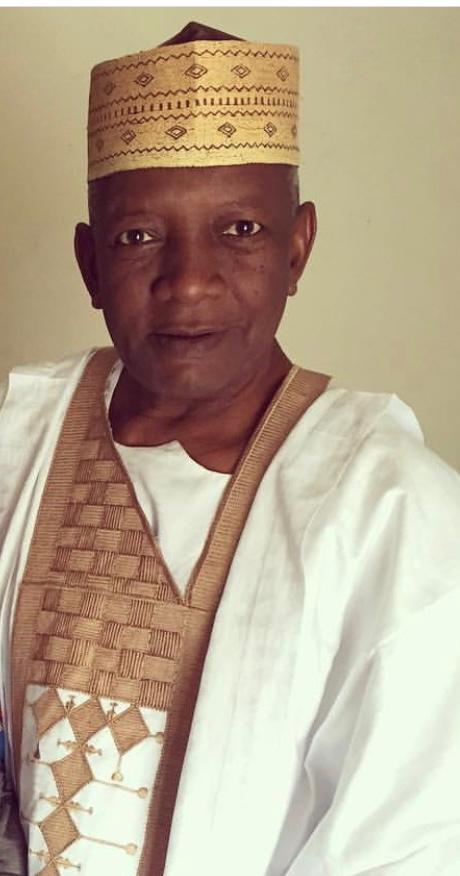Military Intervention in Niger:The Missing Link
By Mahmud Shuaibu Ringim
In 1990, a civil war erupted in Liberia between the factions of Sgt Samuel Doe on one side, and Jamie Johnson and Charles Taylor on the other. This conflict escalated to devastating proportions, engulfing the nation.
In response, the Heads of States of ECOWAS took the decision to intervene militarily, aiming to rescue Liberia from its self-destructive path. This led to the establishment of ECOMOG, a specialized entity tasked with restoring order and stability to Liberia through military means.
Nigeria took the lead in this operation, with Major General Victor Malu heading a contingent composed of troops from various ECOWAS member countries.
Similarly, in subsequent years, Forday Sanko’s actions drew Sierra Leone into a similar situation. Once again, the approach of utilizing ECOMOG forces to restore order was employed, this time aiding the reinstatement of Seref Johnson under unfortunate circumstances.
However, the current turmoil unfolding in the Republic of Niger seems to deviate from the original motivations that gave rise to ECOMOG. This discrepancy represents a missing link. While the Liberian intervention involved a domestic civil war, the situation in Niger involves a change of government by military forces. This scenario has been experienced multiple times in Nigeria’s history without foreign intervention aimed at restoring democracy.
Initially, the ECOWAS treaty did not explicitly prohibit or impose punitive measures on coup d’états, nor did it specify military intervention to restore the status quo. Over time, ECOWAS evolved and amended its protocols, especially after the experiences with ECOMOG. The community collectively adopted a zero-tolerance stance towards governments established through unconstitutional means. Article 3 was expanded to encompass provisions for civilian or military intervention to rectify deviations from constitutional order.
These provisions were invoked in the current context, with President Bola Tinubu leading the charge as the Chairman of the ECOWAS community.
Initially conceived as an economic community to facilitate business and integration, ECOWAS aimed to foster mutually beneficial economic relationships and enable free movement of people, goods, and services, eventually leading to a common currency. This concept resembled the European Union’s structure without equivalent military alliances.
The coup in Niger ignited concerns among ECOWAS leaders about the potential spread of instability to their own nations. Despite provisions already in place to address this issue, they swiftly invoked Article 3(c) of the treaty that established the community.
A meeting of ECOWAS leaders in Abuja resulted in an ultimatum issued to Niger: restore the democratically elected government within fourteen days or face military intervention.
This development unfolded during the initial two weeks of President Nigeria’s tenure as the newly elected leader, highlighting the urgency of the situation.
Read Also:
It is likely that the new ECOWAS Chairman was well-informed about ECOMOG’s history and context before pursuing military intervention. Security briefings would have undoubtedly presented the geopolitical and national security dimensions, particularly Nigeria’s northern border.
It’s evident that the President’s allegiance lies with Nigeria over external influences. He is unlikely to rush into military action without sufficient justification.
Niger shares a porous border of over 1000 kilometers with Nigeria, a challenge for effective immigration and border patrol efforts. The influx of arms from war-torn Libya through Niger’s porous border has been linked to issues like Boko Haram insurgency and banditry in Nigeria. The cultural and historical ties between Niger and northern Nigeria further highlight the importance of diplomatic restraint over military action.
Nigeria should tread carefully, considering the longstanding relationship predating Africa’s partition. Sharing experiences on transitioning from military rule could guide Niger’s political class, avoiding military intervention from a neighboring ally with strong historical and cultural bonds.
Niger has supported Nigeria in critical times, such as the Nigerian civil war and the formation of the task force against Boko Haram. Additionally, Niger has sheltered numerous Nigerian refugees displaced by Boko Haram.
Disregarding diplomacy could potentially escalate the situation, leading to a regional conflict akin to the NATO-Russia conflict in Ukraine.
As a proponent of democracy, the President should have adopted a patient approach, gathering facts and conducting security risk assessments to formulate appropriate responses to this complex situation with national and international implications.
It’s plausible that the ECOWAS Chairman and Nigeria’s President did not hastily convene the ECOWAS Heads of State meeting to announce the ultimatum without proper consultations, particularly with the National Assembly.
The Senate’s rejection of the military deployment request effectively halted the planned intervention.
Cutting off power supply to Niger punishes the citizens and strains bilateral ties, adversely affecting hydroelectric power generation for Nigeria.
The President’s commitment to peaceful coexistence and solidarity with neighboring countries is evident. Restoring electricity supply to Niger would embody these values.
The episode underscores key lessons for the administration:
Failure to engage stakeholders and consult on complex security matters has repercussions.
Advisors should conduct thorough risk analyses to identify potential pitfalls and develop mitigation strategies.
Advisors must account for domestic and regional fallout, assessing the political, economic, and social consequences.
Strategic alignment between international policy and domestic repercussions is paramount for collective national interests.
This situation serves as a litmus test for President Bola Ahmed Tinubu’s leadership, offering insights into navigating stormy waters while safeguarding national and international interests within ECOWAS.
HALIM Consulting
















